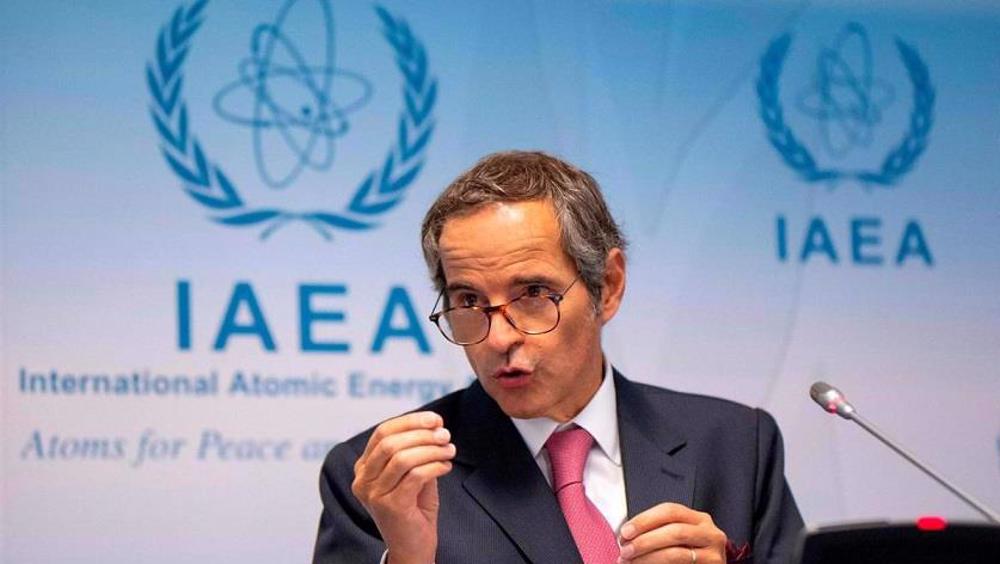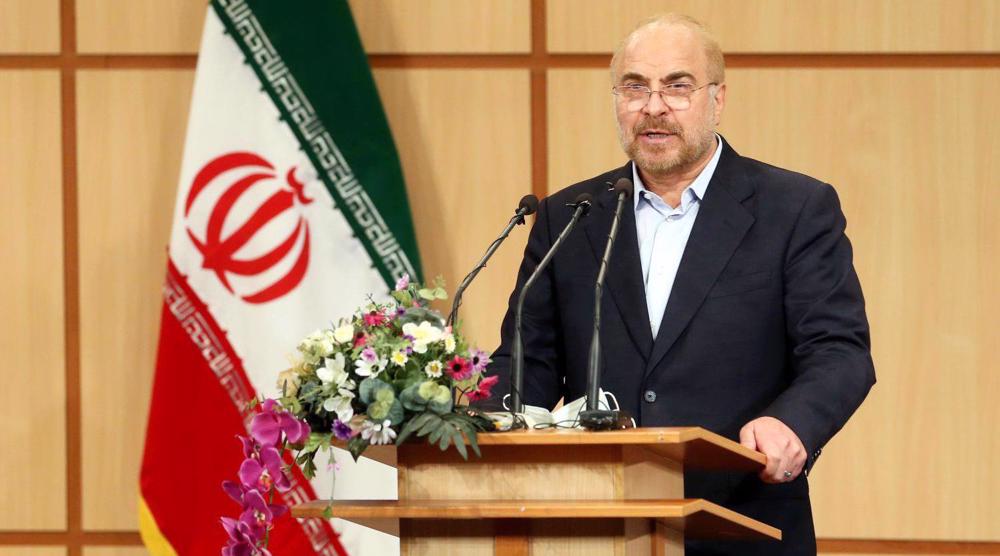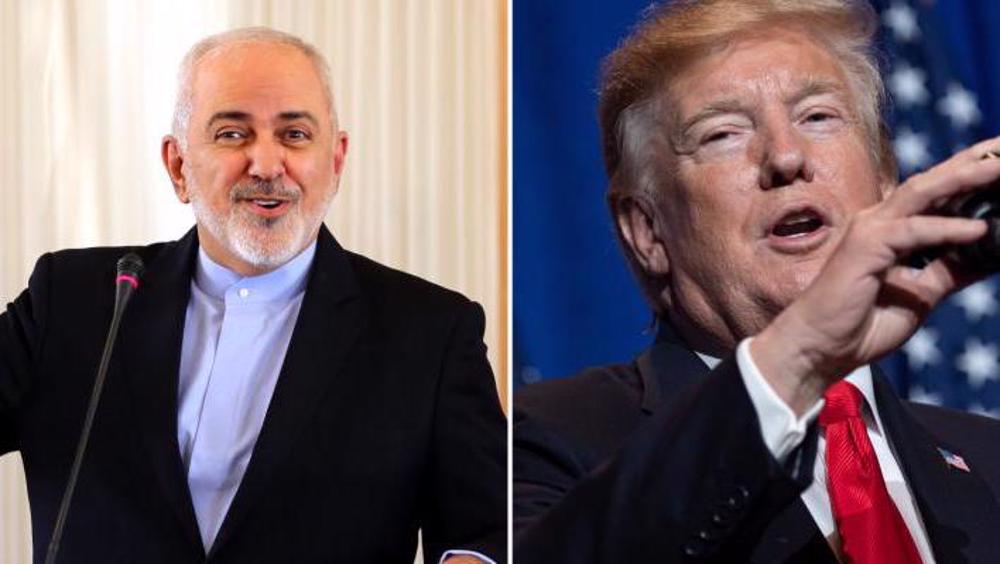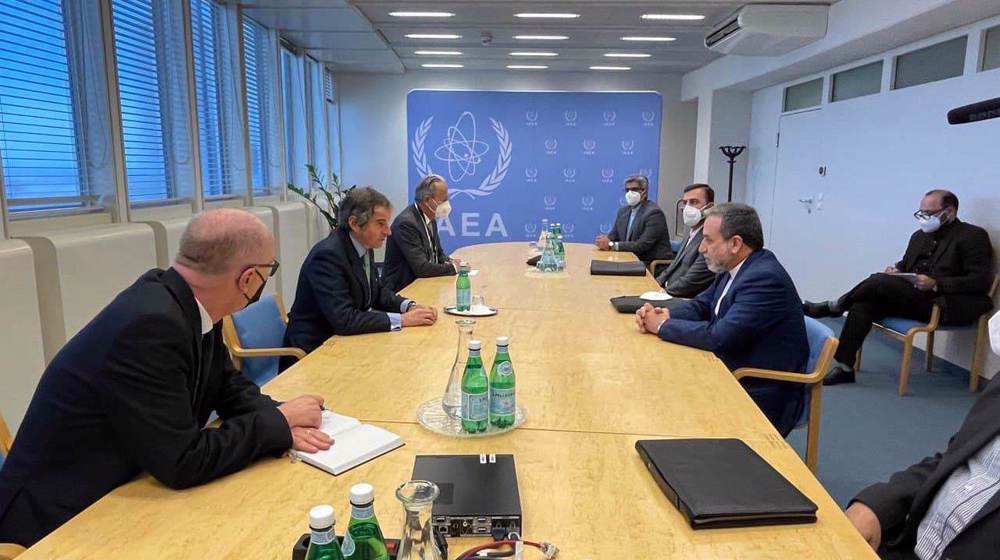Iran rejects ‘preliminary agreement’ over JCPOA, calls for all-encompassing deal
Iran has ruled out a “preliminary agreement” within the format of the ongoing Vienna talks, saying there would be only one agreement encompassing all aspects of measures that need to be taken to revive the 2015 nuclear deal.
“In the current situation, there is no such thing as a preliminary agreement and no agreement would be reached unless everything is agreed upon,” Foreign Ministry spokesman Saeed Khatibzadeh said at a Monday weekly press conference in Tehran.
Khatibzadeh explained that there have been progress as well as differences in separate aspects of the talks that began early last month between Iran and the remaining parties to the 2015 nuclear pact, officially known as the JCPOA, with the aim of bringing the US back into compliance with the deal, three years after it unilaterally left the accord.
He said Iran’s lead negotiator Abbas Araqchi met with European diplomats on Sunday, and decided to expedite concluding the works of the three working groups that were formed to address different issues surrounding the revival of the deal.
The spokesman said a high percentage of the final draft’s blank spaces has been filled within the working groups, but what remains to be filled is also significant.
On a looming deadline set by Iran for the removal of US sanctions, Khatibzadeh said there have been talks to extend the deadline if the negotiations remain on the right path by that day.
‘Inspections beyond Safeguards Agreement out of question’
Iran is set to delete the footage recorded at its nuclear sites on May 21 if the other parties fail to remove Washington’s illegal sanctions. The move comes as part of Tehran’s reductions of its nuclear commitments under the JCPOA over gross non-compliance by Washington.
Khatibzadeh said even if the deadline is extended, the International Atomic Energy Agency (IAEA) will not be able to conduct short-notice inspections beyond the Safeguards Agreement, as Tehran has already suspended its voluntary implementation of the Additional Protocol.
“A few points should be noted. First, the law of the Majlis (parliament) is binding and what has been agreed between Iran and the IAEA is within the same framework. The law of the parliament stopped the Agency’s access beyond Safeguards Agreement, and this began three months ago. And now the International Atomic Energy Agency does not have any access beyond Safeguards Agreement. We also agreed that the footage should be recorded, but not made available to them. This was a domestic decision made inside Iran,” he explained.
He added that the footage can be deleted at the end of the three-month deadline, or the agreement can be extended for one month or so.
‘Iran Negotiators insist on stance’
Khatibzadeh also said that Iranian negotiators insist on the country’s firm stance in their talks with the other parties.
Iran has repeatedly said that the restoration of the JCPOA must include, as first and second steps, the US removal of all of its sanctions in a way that can be verified by Iran, and then, followed by Tehran’s reversal of all of its nuclear measures as the third step.
“While we do not want the talks to be attritional, we certainly do not want an agreement to be reached that is not within the framework of the [Iranian] establishment’s high-level policies and executive instructions,” he said.
“If the conclusions reached [in Vienna] require delegations to return to their capitals, this may happen over the weekend,” he said. “We must wait for the next one or two days to see where these technical negotiations will lead.”
Tehran rejects Middle East Eye report
Asked whether he would confirm a Middle East Eye report that said Iran had asked Saudi Arabia to help sell its oil and circumvent US sanctions in exchange for limiting Yemeni attacks on the kingdom’s oil facilities”, Khatibzadeh rejected the claims as untrue and fake news.
“Our talks with Saudi Arabia are about bilateral, regional and international issues, and this news is not true,” he said.
Last Monday, Khatibzadeh confirmed talks with Saudi Arabia, saying the goal of the talks is to secure bilateral and regional interests.
“We have always welcomed such talks in any form or at any level and this is not our new policy, but let us wait and see the outcome of the negotiations and judge accordingly,” he said, noting that it may be still premature to talk about the outcome at this stage.
In recent months, observers have noted the change in Riyadh’s tone toward Tehran, saying Saudi Arabia’s failed war on Yemen, as well as former US President Donald Trump’s defeat in the 2020 election, are among the reasons behind Riyadh’s new approach toward Tehran.
In quitting the JCPOA in May 2018, Trump reimposed sanctions that had been lifted under the accord – as part of his “maximum pressure” policy – while piling on the pressure with additional sanctions. Israel and Saudi Arabia were among few countries that supported the anti-Iran policy.
VIDEO | Yemenis praise the military for its successful operations against Israel
VIDEO | Israel continues to bomb Gaza homes
VIDEO | An insider's view of the country: Meybod City in Yazd
‘All wars have rules. All of those rules have been broken’ by Israel
VIDEO | Report flags India’s violation of rights of Rohingya detainees
Turkey's foreign minister meets Syria's de facto leader in Damascus
VIDEO | US Syria plots
'Next to impossible' to rescue patients from Gaza's Kamal Adwan Hospital: Director
















 This makes it easy to access the Press TV website
This makes it easy to access the Press TV website